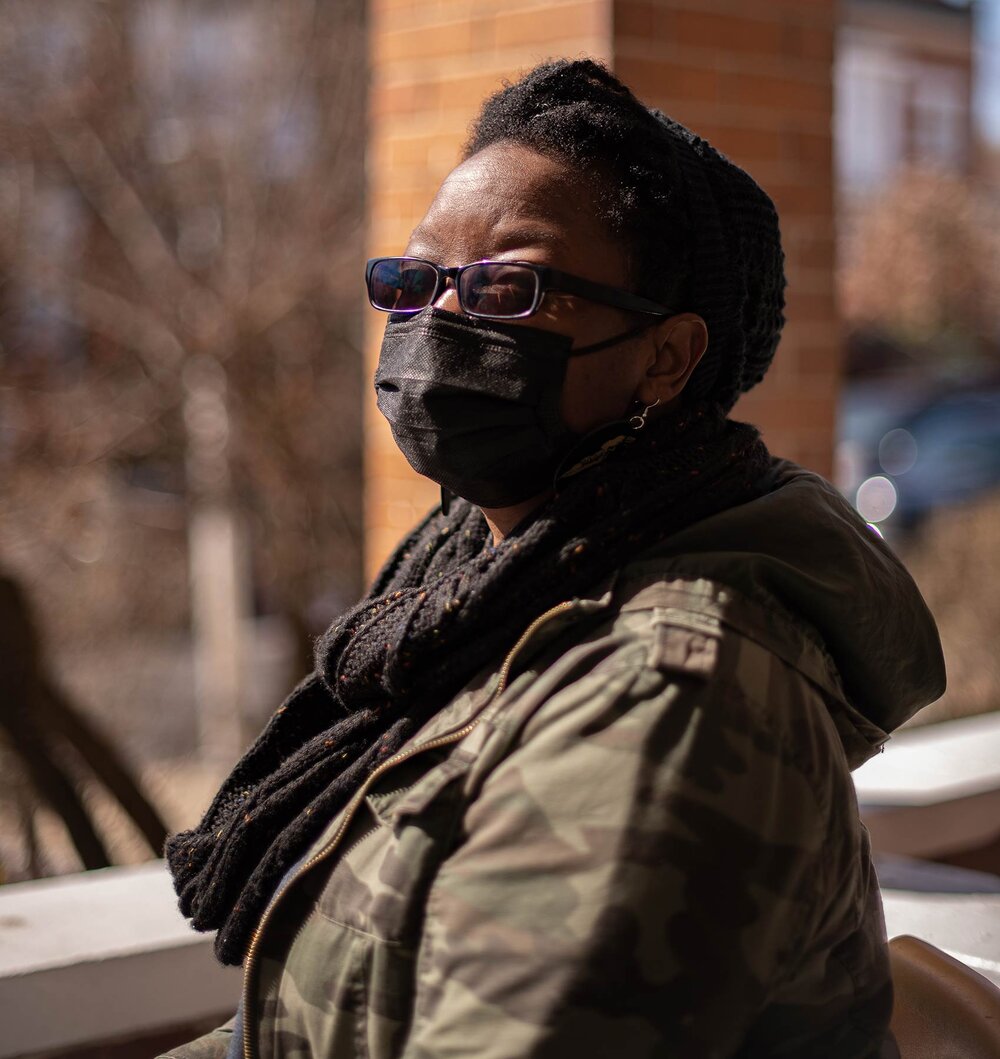Grandma Marion's Arms
SPECIAL ISSUE: HIGH BLOOD PRESSURE
WORDS - Alanah Nichole Davis
My daddy was the son of a soft-bodied and soft-spoken woman named Marion Irene Davis. A sweet, full-bodied and prayerful woman in every regard, who I, as her grandchild, knew not for the sweat of her brow but for her love. I often yearn for and daydream nostalgically about my Grandma Marion and the home she made at 10 Catherine Slip, New York, NY. Just like me, my Grandma was a plus-sized woman who enjoyed her tea with a little sweetener; she used Domino and I use simple syrup. I got not only my taste for tea but also my arms: soft arms with dimpled elbows and wide enough for both my babies to find respite after long days. My hands even look just like hers. When I’m nervous I get a little clammy, I fidget, and my hands perspire. I never got the chance to ask if her palms sweat too before she passed on a spring day years ago.
That perspiration meets me like clockwork every time I am scheduled to go to a doctor. Whether I’m going to the OBGYN, my primary care physician, or even the small robotic blood pressure machine in my local drug-store, my soft arms and sweaty hands do not discriminate, honey. It’s nerve-wracking to think about the news I’ll receive at doctor’s visits. My outcomes have been good for the most part, thank God. Except for when I became pregnant twice in my early twenties, the concern from my care team was always for my higher than usual blood pressure. The doctors would monitor my pressure at every visit. Sometimes a nurse’s assistant would take it after I’d sit down on a papered exam table by a rolling blue machine with forced air and red numbers. Other times the doctor might do it manually, with a sphygmomanometer and a stethoscope. Before my appointments, I would breathe deeply, meditate, sniff pleasant things like lavender and my pressure would still be high enough for concern. It often left me feeling anxious and out of control.
I, and so many Black women, feel this lack of control and anxiety surrounding our healthcare. So, I began to educate and advocate for myself at my doctor’s appointments. If I noticed I received better numbers with one nurse’s assistant than the other, I’d ask for them. If I realized the blood pressure cuff wasn’t large enough for my soft, squishy, round arms, I’d ask for a larger cuff.
When I say numbers, I’m referring to our systolic and diastolic blood pressure. During my first pregnancy in my early twenties, I ate more pre-packaged and fast foods, which tend to have more sodium. Because of that, both my systolic and diastolic numbers were always a bit elevated. I learned in my research that when you eat too much salt, which contains sodium, your body holds extra water to "wash" the salt from your body. In some folks, especially Black folks, that extra water may increase blood pressure. While pregnant with my second child, I ate less pre-packaged food and less Pizza Hut, which was surely my jam during my first pregnancy. I saw the difference in my blood pressure recordings in that second go-round for sure.
I had to shift my relationship to food, not just for pregnancy but for life. I’m still working on it. Just like I had learned to sweeten my tea from Grandma Marion, I had learned to eat like her too. From the shape and aesthetic of our features and body parts to our eating habits, things run in the family and transfer from generation to generation.
When I’d cook, I used to pinch more salt and sugar than I should, like my Grandma Marion did with her soft arms; like her daughter Joanne, my aunt Dee Dee, my mother Leslie, her sister Valerie and their mother Alice. I do absolutely have my sweet, soft-spoken Grandma Marion’s arms, and the cooking habits of the matriarchs of my family. When the vinyl of the blood pressure cuff wraps around the soft flesh of my arm, I think of those matriarchs, how some of them struggle with concerning systolic and diastolic numbers, and how those higher than usual numbers should not end in death but in life: green vegetables, meditation, brisk walks while swinging my arms for additional aerobic effect and lifting small weights while watching television (which admittedly I should do more). With my dimpled, millennial hands clasped together like my grandmother’s before mine, I can also pray for the strength to be a healthy example for my daughters after me, and theirs after them.



